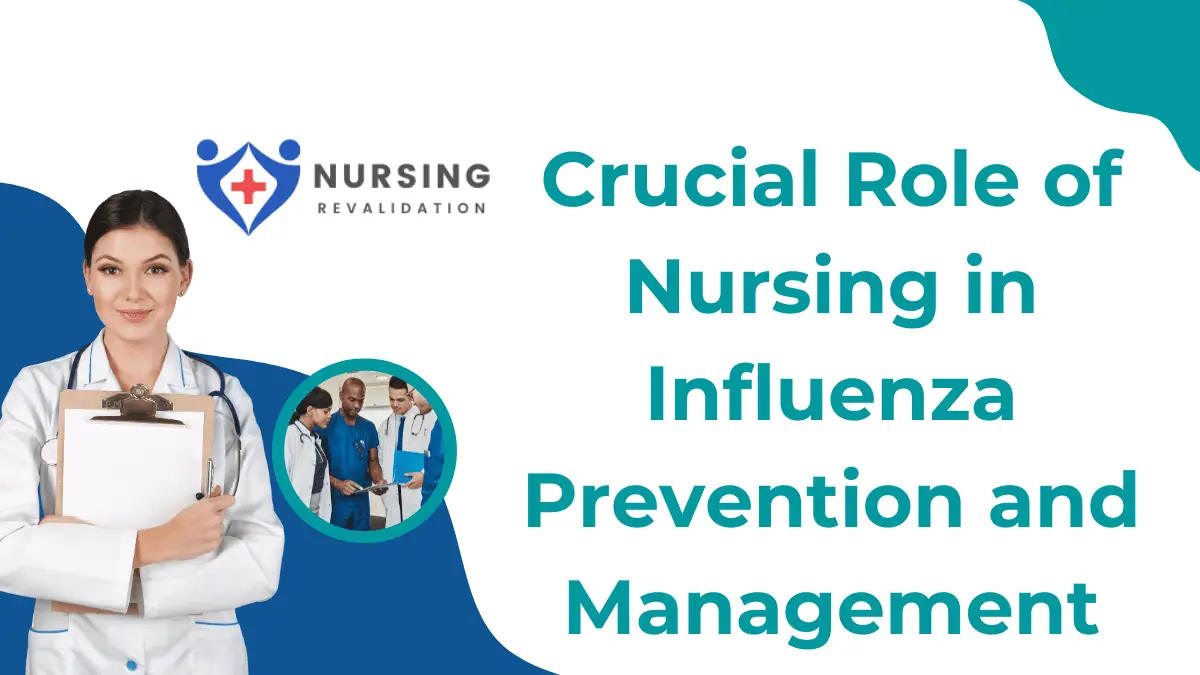In the realm of healthcare, nursing stands as a cornerstone, particularly in the prevention and management of influenza. Nurses are at the forefront of patient care, playing a pivotal role in education, prevention strategies, vaccination campaigns, and patient support during influenza outbreaks. In this comprehensive guide, we delve into the multifaceted contributions of nurses in combating influenza, highlighting their expertise, responsibilities, and the impact they have on public health.
Table: Impact of Nursing Interventions on Influenza Prevention and Management
| Nursing Intervention | Impact |
|---|---|
| Education and Outreach | Increased awareness, prevention of transmission, and informed decision-making regarding health measures |
| Vaccine Administration | Higher vaccination rates, enhanced community immunity, and reduced influenza incidence |
| Symptom Management | Alleviation of discomfort, prevention of complications, and facilitation of recovery |
| Emotional Support | Improved patient well-being, enhanced coping mechanisms, and strengthened resilience |
| Surveillance and Reporting | Timely detection of outbreaks, informed public health responses, and optimized resource allocation |
Expertise in Influenza Prevention
Educating the Community
Nurses possess the expertise to educate individuals and communities about influenza, including transmission modes, symptoms, preventive measures, and treatment options. Through outreach programs, community workshops, and educational materials, they empower individuals to make informed decisions regarding their health. By fostering awareness and understanding, nurses contribute significantly to the prevention of influenza spread.
Implementing Preventive Strategies
In healthcare settings, nurses play a vital role in implementing preventive strategies to minimize influenza transmission. This includes enforcing strict infection control protocols, promoting hand hygiene practices, facilitating mask usage, and ensuring adherence to vaccination schedules. Through their vigilance and proactive measures, nurses mitigate the risk of influenza outbreaks within hospitals, clinics, and long-term care facilities.
Administering Vaccinations
Nurses are instrumental in administering influenza vaccines, a cornerstone of prevention efforts. They assess eligibility, provide counseling, and administer vaccines safely and efficiently. Additionally, nurses address vaccine hesitancy by addressing concerns and dispelling myths, promoting widespread vaccine uptake to bolster community immunity. Their expertise in vaccine administration ensures optimal coverage, thereby reducing the incidence and severity of influenza infections.
Empowering Patients Through Support and Care
Symptom Management and Treatment
During influenza outbreaks, nurses provide essential care to individuals affected by the virus. They assess symptoms, monitor vital signs, and administer appropriate treatments to alleviate discomfort and prevent complications. Through their clinical expertise and compassionate care, nurses facilitate the recovery process and minimize the impact of influenza on patient health.
Emotional Support and Guidance
In addition to physical care, nurses offer invaluable emotional support to patients and their families. They provide reassurance, address concerns, and offer guidance on symptom management and self-care strategies. By fostering a supportive environment, nurses empower patients to navigate the challenges posed by influenza with resilience and confidence.
Promoting Public Health Initiatives
Participation in Vaccination Campaigns
Nurses actively participate in influenza vaccination campaigns, both within healthcare settings and in the community. They collaborate with public health agencies, educational institutions, and community organizations to facilitate mass vaccination events, mobile clinics, and outreach initiatives. Through their involvement, nurses bolster vaccination rates, protect vulnerable populations, and promote population-wide immunity against influenza.
Surveillance and Data Collection
Nurses contribute to influenza surveillance efforts by monitoring cases, tracking trends, and reporting data to public health authorities. Through their meticulous record-keeping and data collection, nurses provide crucial insights into influenza epidemiology, guiding public health interventions and resource allocation. Their vigilance enables timely detection of outbreaks and informed decision-making to mitigate the spread of influenza.
Conclusion
In conclusion, the role of nursing in influenza prevention and management is indispensable. Nurses leverage their expertise, compassion, and dedication to educate, empower, and care for individuals and communities affected by influenza. Through their proactive efforts in prevention, clinical care, and public health initiatives, nurses play a pivotal role in reducing the burden of influenza and safeguarding public health. As we navigate the challenges posed by influenza outbreaks, let us recognize and appreciate the invaluable contributions of nurses in protecting and promoting the health and well-being of our communities.


